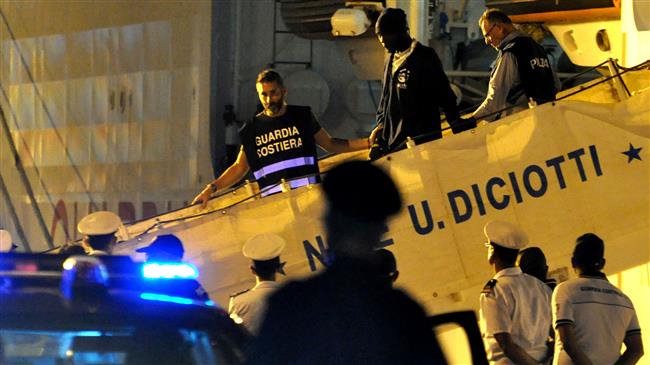

The United Nations migration agency says at least 1,500 refugees have lost their lives in the Mediterranean since the start of this year, particularly along the perilous route between crisis-hit Libya and Italy.
“Despite incredibly low numbers arriving to Italy, the per capita death or the rate of death per 1,000 people may be at its highest point since the emergency began,” Joel Millman, a spokesman for the International Organization for Migration (IOM), said on Friday.
He added that some 55,000 refugees had stepped on European soil since January, against more than double that figure at this time last year, around 111,753.
According to the IOM, Spain, which has overtaken Italy as the preferred destination, has registered nearly 21,000 refugees since January, almost more than in the whole of the previous year.
Italy, whose new government has shut down its ports to rescue vessels, has had around 18,130 refugees arriving through the Mediterranean from Libya this year, with the rest going to Greece, Malta and Cyprus.
More than 600 African refugees forced their way through the heavily fortified border fence separating the Spanish North African enclave of Ceuta from Morocco on Thursday, employing saws, shears and mallets to cut through the wire.
“What we can say is that the first indications that we are getting from the Spanish authorities is that it is the West African migrants that were most prominent crossing into Libya in the past couple of years who seem to be choosing Spain as their route now,” Millman added.
The death rate on the western Mediterranean route to Spain is around one in 70 refugees, he further said.
Earlier this month, Doctors Without Borders said between 5,000 and 7,000 people were held in seven official centers in the Libyan capital Tripoli, which it described as overcrowded and unsanitary, with scabies and tuberculosis common.
There are 17 government detention facilities across Libya amid reports of physical assaults and inhumane conditions in the centers.







